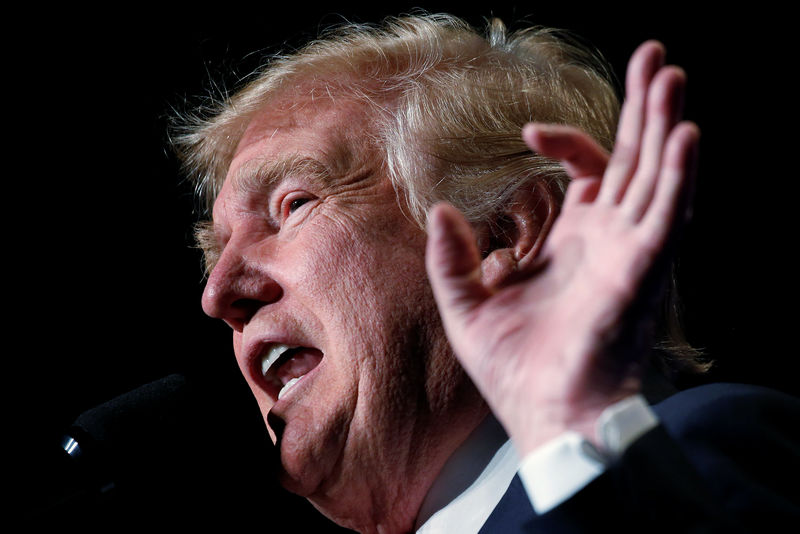(Bloomberg) -- Having listened to President Donald Trump’s ‘America First’ rhetoric and his hammering of the need to reduce U.S. trade deficits, what many Chinese executives say they hear is not the threat of a trade war, but the words of a dealmaker who’ll be good for business.
In interviews with more than a dozen executives in Shanghai, Guangzhou and other Chinese cities over the past week, the sentiment expressed repeatedly was a confidence in strong economic ties between the world’s largest economies -- not despite of Trump but because of him.
“He looks at managing a country as similar to doing business, and this is a good thing," said Hu Huazhi, founder and chairman of EHang Inc., a drone maker based in southern China. “If America does well, it will pull along other countries more rapidly.”
Behind that optimism is the belief among the executives that a trade war would be too costly for both countries. While having repeatedly bashed China on the campaign trail, Trump has in office softened his rhetoric and walked away from threats to declare the country a currency manipulator and slap heavy tariffs on its goods.
“Even though some people say he has been anti-globalization, in fact he is a pragmatic, realistic person when it comes to protecting his own country’s interests,” said Guangzhou Automobile Group President Feng Xingya, noting that U.S. manufacturers sell far more auto products to China than Chinese manufacturers sell to America. “So establishing a good relationship between our two countries is very beneficial to the U.S.”
If there were a trade war, many of these executives would have much to lose. Drone maker EHang, for example, signed an agreement last year with Silver Spring, Maryland-based Lung Biotechnology to develop machines to transport items for medical use.
Chinese investment into the U.S. reached a record of $46 billion last year. While newly announced Chinese takeovers of U.S. companies has fallen 67 percent this year, that was mainly because Chinese regulators tightened capital controls, according to the New York-based consultancy Rhodium Group.
Midea Group Co. -- the world’s biggest appliance maker, which early this year bought German robot maker Kuka AG for $4 billion -- is another example. It has manufacturing and distribution joint ventures with United Technologies Corp (NYSE:UTX).’s air-conditioner unit Carrier in Argentina, Brazil and North America. The U.S. company also has a small stake in Midea’s refrigerator business in the Chinese city of Chongqing.
“The scale of our cooperation is getting bigger and bigger every year. UTC’s transactions with us are more than $1 billion every year. If it wasn’t a win-win relationship, it would not have grown so much,” Midea Chairman and CEO Paul Fang said in an interview. “In terms of our bilateral relationship, it’s the same -- if it were not win-win, China and the U.S. would not have such a scale of cooperation.”
Not everyone is as optimistic. A survey by the American Chamber of Commerce in China found that representatives of about four-fifths of U.S. companies say they feel less welcome than before, citing inconsistent use of regulations and unclear laws as top challenges. Efforts to reach an agreement on a bilateral investment treaty are making slow progress, with too many sectors still closed to foreign investment, said AmCham China Chairman William Zarit.
At the Canton trade fair in the southern Chinese city of Guangzhou, Sarah Ouyang, a sales representative for an exporter of outdoor sportswear, downplayed the potential impact that U.S. policies could have on China. She noted a September meeting of leaders from Brazil, Russia, India, South Africa and China in the city of Xiamen as an example of how trade ties are being fostered with more countries around the world.
“We have the Chinese government to back us up,” she said.
